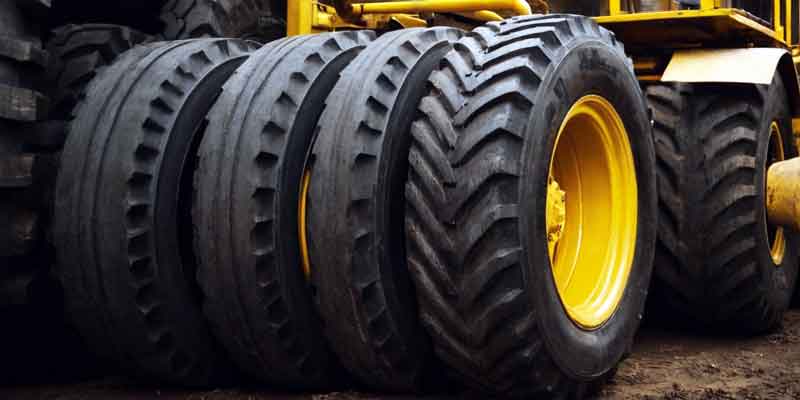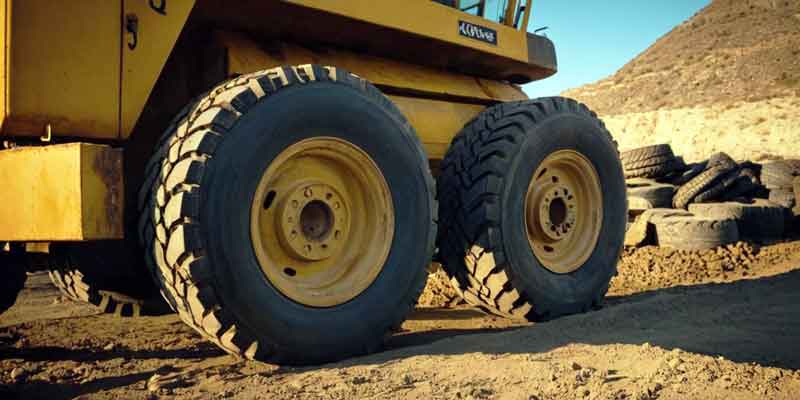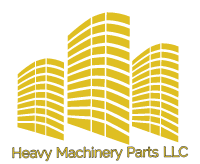Tires play a pivotal role in heavy machinery, influencing stability, traction, safety, and overall equipment performance. In this comprehensive guide, we delve into the significance of tire maintenance for heavy machinery and provide insights into selecting the right tires and ensuring proper upkeep for optimal performance.
Choosing the right tires:
- Size and Type of Tire: It’s crucial to select tires that are compatible with the size and weight of your machinery. Additionally, consider different tire types such as pneumatic, solid, and foam-filled, each with its own advantages and disadvantages.
- Load Capacity: Verify the load capacity of the tires to ensure they can support the weight of your machinery and the loads it will carry.
- Wear Resistance and Durability: Opt for tires that offer good wear resistance and durability, particularly if your heavy machinery will operate in challenging or abrasive conditions.

Proper tire maintenance:
Effective maintenance is vital for ensuring optimal performance and extended lifespan of heavy machinery tires. Here are some tips for tire care:
- Regular Inspections: Conduct regular inspections of your heavy machinery tires to check for signs of wear, damage, or deformations. Address any issues promptly.
- Maintain Proper Pressure: Ensure tires are inflated to the manufacturer’s recommended pressure. Incorrect pressure can lead to uneven wear, reduced fuel efficiency, and increased accident risks.
- Rotation and Balancing: Similar to passenger vehicles, rotating and balancing heavy machinery tires can promote even wear and prolong their lifespan.
- Cleaning and Storage: Keep tires clean and free of debris to prevent damage and premature wear. When not in use, store tires in a cool, dry place protected from direct sunlight to prevent rubber degradation.
If you want to have a maintenance card to help you keep track of the maintenance of your tires, just subscribe and receive them for free in your mailbox.
Common tire damages in heavy machinery:
Various issues can affect heavy machinery tires:
- Wear: Damage resulting from usage, sometimes overlooked. Excessive wear can impact machinery safety and efficiency and may necessitate tire replacement, identifiable when the tire tread is worn smooth.
- Cuts and Punctures: Heavy machinery tires can suffer cuts and punctures from exposure to sharp objects in the work environment. This can cause pressure loss and pose a hazard in operations involving heavy material loads.
- Casing Separation: This can result from excessive heat generated during operation, compromising tire safety.
- Impact Damage: Occurs due to impacts or collisions with objects in the work environment.
- Aging: Unlike wear, which results from usage, aging occurs due to exposure to environmental factors such as sunlight, heat, and moisture. This can make the tire more brittle and less resistant to impacts.

Preventing tire damages in heavy machinery:
Regular inspections: Perform routine inspections of heavy machinery tires to detect these issues early. Here are some actions to help prevent damages:
- Conduct Periodic Inspections: This can be done before starting operations, conducting a visual check before moving the equipment. Check tire air pressure, tread depth, tread integrity, wear, and cracks in the casing. Maintain Proper Air Pressure: Insufficient or excessive air pressure can affect machinery stability and increase accident risk.
- Avoid Overloading: Overloading is common; ensure machinery does not exceed the load limit specified by the manufacturer and distribute the load evenly among the tires.
- Proper Equipment Handling: While it may sound obvious, improper handling practices such as abrupt maneuvers, sudden stops, and sharp turns can cause tire damage.
- Follow Recommended Preventive Maintenance: This includes tire rotation, balancing, alignment, lubrication of suspension components, among others. Refer to the manufacturer’s guidelines for each tire type your equipment uses.
Tires play a critical role in heavy machinery, and selecting the right tires and maintaining them properly is essential for optimal performance and extended lifespan. By following these guidelines, you can maximize the efficiency and safety of your heavy machinery, reduce operational costs, and ensure your equipment operates efficiently throughout its lifespan.
